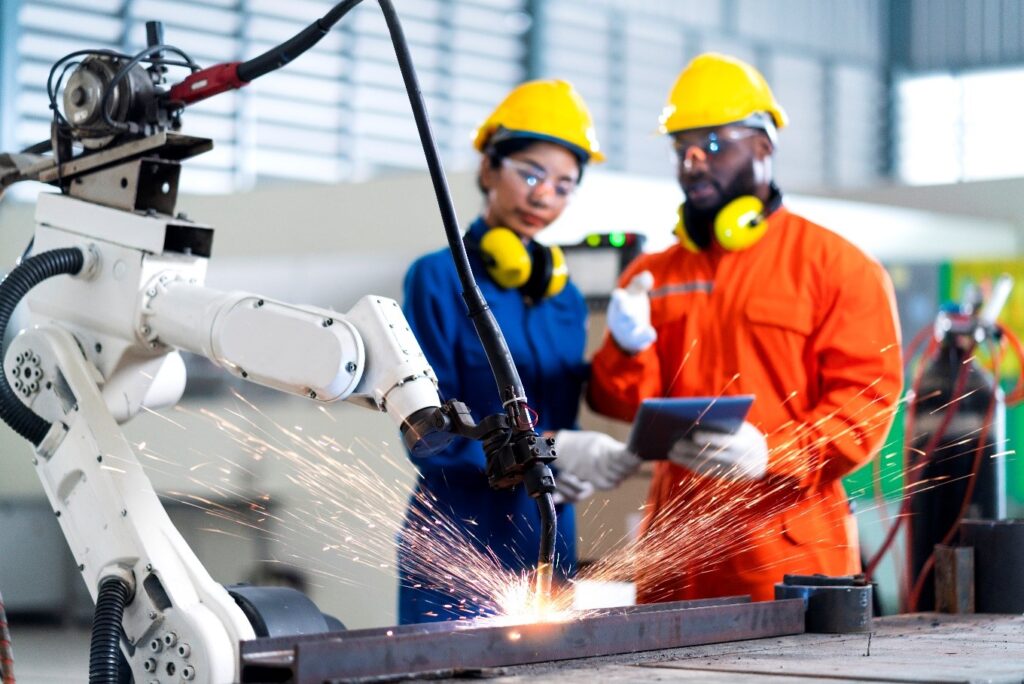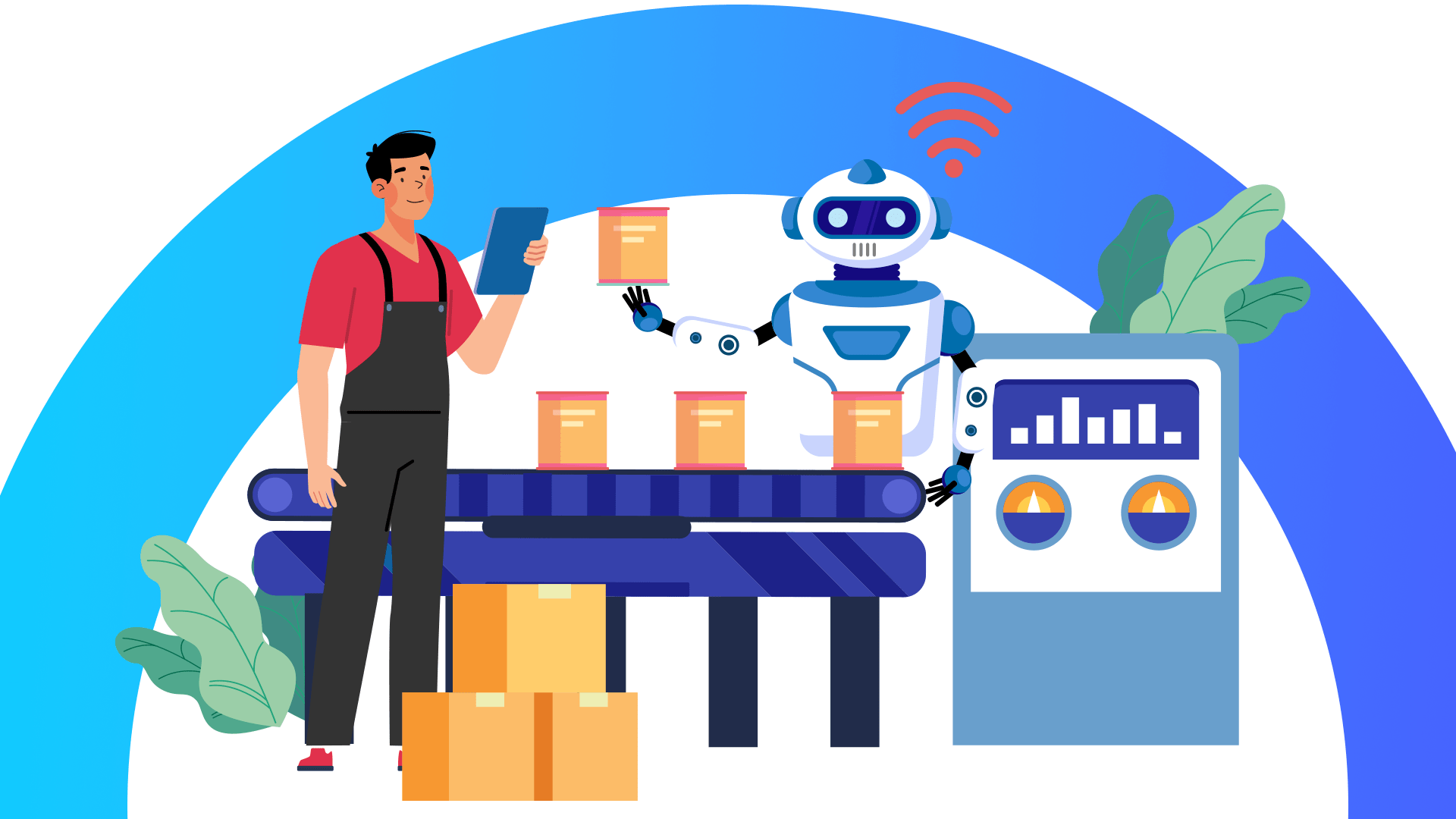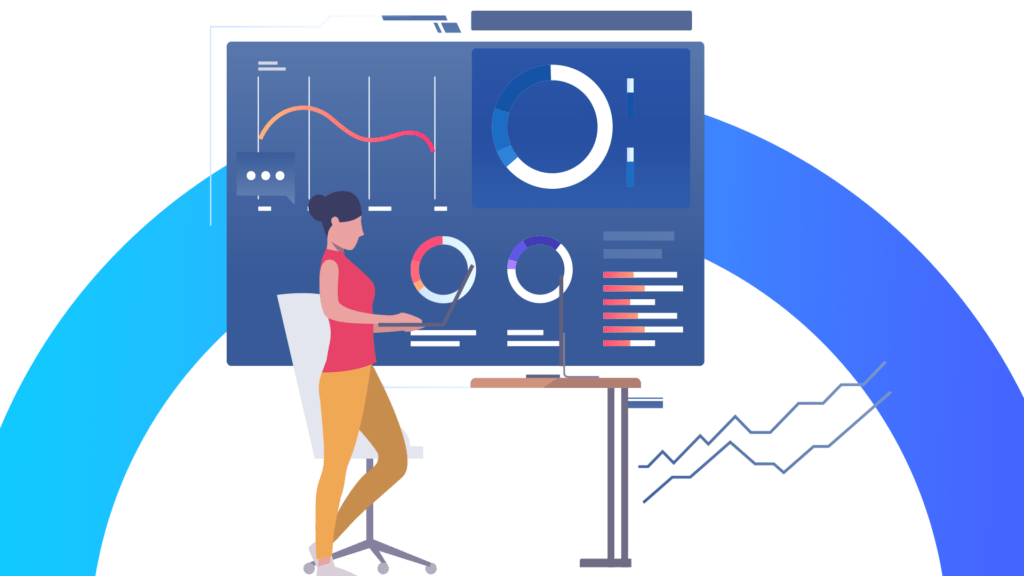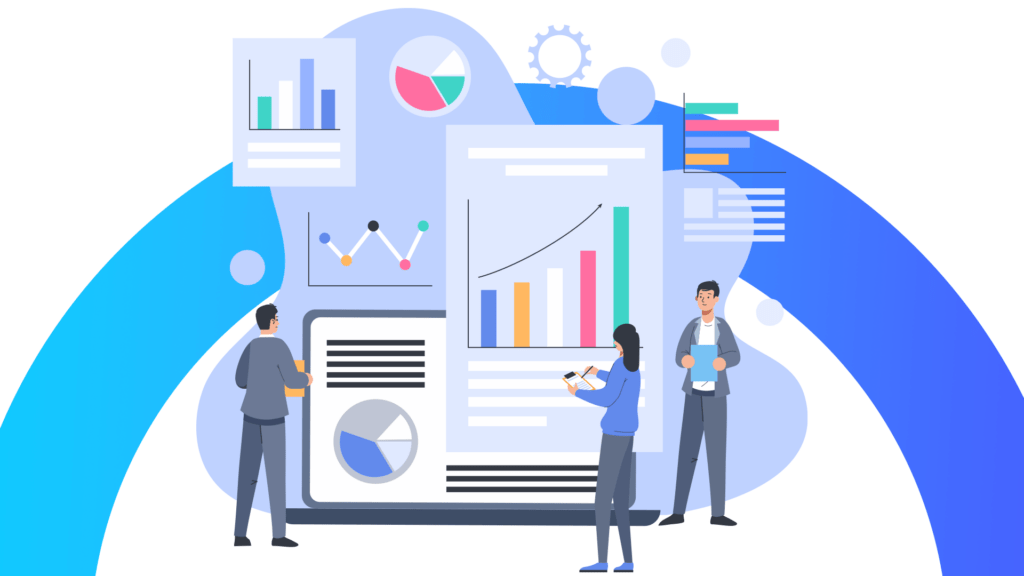AI platforms are transforming manufacturing by increasing efficiency, reducing costs, and enhancing product quality. Through predictive maintenance, inventory optimization, and safety improvements, AI drives smarter decision-making and innovation, paving the way for the future of manufacturing

From cybersecurity and healthcare to self-driving cars, rapid transformation has been seen in industries around the globe. The catalyst? Artificial Intelligence (AI). Responsible for digital transformations left, right and centre, AI platforms have a seen a rapid growth in adoption and development. This can be accredited to its revolutionary effect on major sectors. In this blog, we’ll shine a special focus on the impact caused by AI platforms on the manufacturing sector.
In the context of manufacturing, AI refers to using advanced computer systems to mimic human intelligence. This allows companies to increase productivity, cut costs, and enhance quality. Let’s dive deeper into how AI transforms manufacturing, and the applications and benefits of AI platforms, showcasing how it can revolutionize the industry.
Role of AI platforms in manufacturing
Getting started with AI in manufacturing
An AI platform provides the best way to start using artificial intelligence in manufacturing. These platforms include tools for developing, deploying, and managing solutions tailored specifically for manufacturing challenges. They tackle matters like quality control, predictive maintenance, and process optimization.
Here’s what stands out in an AI platform:
Data management:
The platform collects, organizes and clean ups data from sensors, machines and logs.
Pre-built models:
Provides algorithms designed for manufacturing, allowing you to start using AI quickly.
Deployment tools:
The platform helps deploy and continuously improve AI models for ongoing optimization.
Using an AI platform, manufacturers can quickly adopt AI-driven solutions, keeping up with an increasingly competitive market.
The evolution of conventional data historians
By combining data collected from multiple sources with machine learning and deep learning algorithms, AI platforms develop AI models. These automate tasks, making processes more precise. The steps typically include gathering the necessary information, developing models using this data and testing these models before applying them in production. Eventually the models experience increased efficiency across various areas of operation.
AI platforms benefit manufacturing in several ways, including:
1. Predicting demand
AI platforms aid manufacturers by helping predict product demand. This is achieved by analyzing past data and trends, recognizing buying patterns, and helping businesses prepare for seasonal shifts. The result is better planning, reduced waste and maximized profits.
2. Reducing maintenance costs
These platforms harness the ability to predict when machines may break, enabling businesses to conduct preventive maintenance before issues arise. This allows for saved time and money, all the while avoiding unexpected breakdowns. In order to ensure timeliness of services, AI keeps an eye on equipment performance, in turn ensuring smoothly running operations.
3. Optimizing inventory levels
AI platforms can track inventory levels, alerting the team when stocks need replenishing. Based on current inventory level, it can even place orders automatically. By doing this, AI helps manufacturers avoid both overstocking and going short on stock, ultimately streamlining supply chain management.
4. Ensuring product quality
By using image recognition, AI platforms detect defects in any raw materials or finished products. This enables identification of problems early, leading to cost savings and to ensuring that only top-quality products reach customers. Such a proactive approach allows for reduced waste and boosted overall production quality.
5. Enhancing safety mechanisms
AI platforms help train employees on safety protocols by simulating emergency situations. Through AI, data-driven safety strategies can be developed by companies, making the workplace safer for everyone.
6. Boosting productivity
If routine tasks are automated, employees have more free time to handle other complex tasks. This increases productivity without extending work hours. Once the focus is more on high-value tasks, companies experience higher productivity in the same amount of time.
The future of AI in manufacturing
AI’s future in manufacturing looks bright. With the AI market amounting to 200 billion USD in 2023, and predicted to grow beyond 1.8 trillion USD by 2030, the technology is set to drive growth across many industries. Soon we will witness AI platforms managing production processes autonomously, with real-time adjustments being made based on external factors. The designing of processes, problem diagnostics, and solution implementation will be achieved with minimal human input.
One such example is of OmniConnectTM Data Cloud, a cloud-native platform that drives digital transformation by integrating IT and OT data. By using AI and machine learning, it processes data from various sources, enabling real-time insights and analytics for smarter decision-making. The platform helps manufacturers conduct predictive maintenance, reach operational optimization, and make data-driven strategies. This makes it ideal for businesses aiming to enhance efficiency and adopt Industry 4.0 and 5.0 practices.
For manufacturers, it is no longer just an option to adopt AI. It is instead a necessity, given the integral nature of AI in driving digital transformation of the industry. The benefits far outweigh any associated costs. Embracing AI means efficiency, innovation, and profitability for businesses.
To become a part of this new wave of technological advancements, talk to our experts and learn how you can harness our AI powered platform to reach new business heights.




